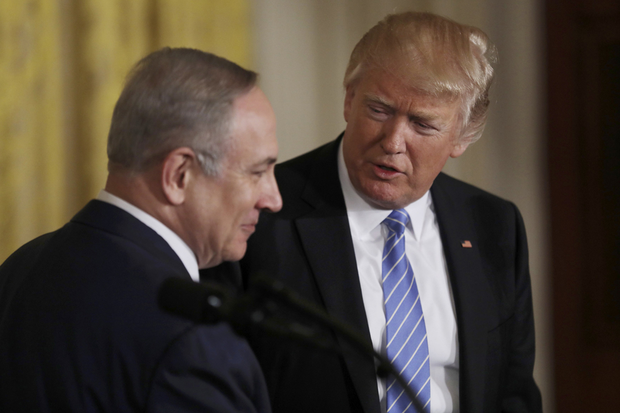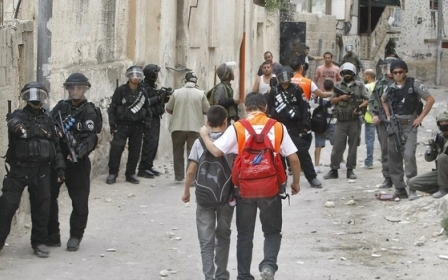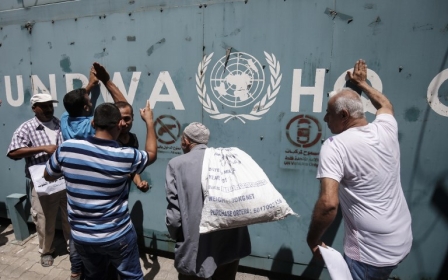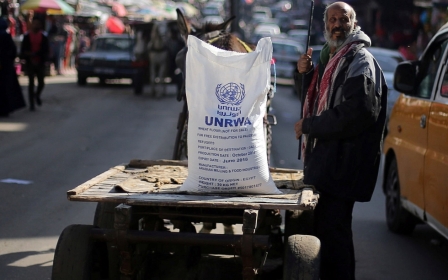Trump cuts $25m in aid for Palestinians in East Jerusalem hospitals

US President Donald Trump ordered that $25m earmarked for the medical care of Palestinians in East Jerusalem hospitals be directed elsewhere as part of a review of aid, a State Department official said on Saturday.
Trump called for a review of US assistance to the Palestinians earlier this year to ensure that the funds were being spent in accordance with national interests and were providing value to taxpayers, Reuters reported.
"As a result of that review, at the direction of the President, we will be redirecting approximately $25 million originally planned for the East Jerusalem Hospital Network," the State Department official said. "Those funds will go to high-priority projects elsewhere."
The aid cut is the latest in a number of actions by the Trump administration that have alienated Palestinians, including the recognition of Jerusalem as Israel's capital and moving the US embassy to Jerusalem from Tel Aviv.
"This is not a formula of peace-building, this is a complete inhuman and immoral action that adopts the Israeli right-wing narrative to target and punish Palestinian citizens to compromise their rights to independence," AFP cited Ahmad Shami, a spokesman for Palestinian leader Mahmoud Abbas, as saying.
"Such an act of political blackmail goes against the norms of human decency and morality," added Hanan Ashrawi, a member of the Palestine Liberation Organization executive committee.
That move reversed longtime US policy and led Palestinian leadership to boycott Washington peace efforts led by Jared Kushner, Trump's senior adviser and son-in-law.
Last month, the Trump administration said it would redirect $200m in Palestinian economic support funds for programmes in the West Bank and Gaza.
At the end of August, Trump halted all funding to the United Nations Relief and Works Agency for Palestine Refugees (UNRWA), a decision that further heightened tensions with the Palestinian leadership.
Palestinian refugees have reacted with dismay to the funding cuts, warning they would lead to more poverty, anger and instability in the Middle East.
A statement from the Palestinian Foreign Ministry said the latest aid cut was part of a US attempt "to liquidate the Palestinian cause" and added that it would threaten the lives of thousands of Palestinians and the livelihoods of thousands of hospital employees.
"This dangerous and unjustified American escalation has crossed all red lines and is considered a direct aggression against the Palestinian people," it said.
At the gates of two of the East Jerusalem hospitals affected, medical staff were aware of the decision but declined to comment.
One of the centres, Al Makassed Islamic Charitable Society Hospital, said in statement the US aid cuts come as the "hospital is going through a suffocating crisis as a result of the lack of flow of financial aid, and the piling up of debts and funds held back by the Palestinian government".
It treats patients from the West Bank, Gaza and East Jerusalem.
In the past, the US funds made it possible for many Palestinians to seek specialised treatment - such as cardiac surgery, neonatal intensive care or children's dialysis - unavailable in the West Bank and Gaza, according to the World Health Organisation.
In the statement, hospital CEO Dr Bassam Abu Libdeh "questioned the justification behind mixing political issues with medical and humanitarian issues".
Still, Trump had made it clear on Thursday that he was trying to force the Palestinians to negotiate.
"You'll get money, but we're not paying you until we make a deal," he said in Washington. "If we don't make a deal, we're not paying."
Instead, Palestinians say his position has weakened moderates and encouraged radicals across the Middle East.
New MEE newsletter: Jerusalem Dispatch
Sign up to get the latest insights and analysis on Israel-Palestine, alongside Turkey Unpacked and other MEE newsletters
Middle East Eye delivers independent and unrivalled coverage and analysis of the Middle East, North Africa and beyond. To learn more about republishing this content and the associated fees, please fill out this form. More about MEE can be found here.




